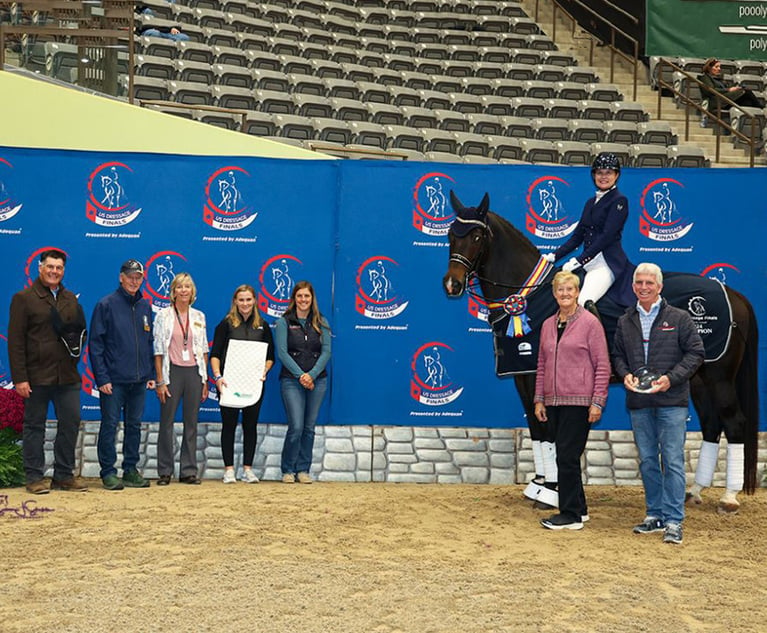 Minute Maid Park in Houston, Texas, the home field of the Houston Astros. (Photo: Wikipedia)
Minute Maid Park in Houston, Texas, the home field of the Houston Astros. (Photo: Wikipedia)These 2 In-House Counsel Led Investigation Into Houston Astros Cheating Scandal
MLB deputy general counsel Bryan Seeley and Moira Weinberg led the investigation into the scandal that shook up top management at the Houston Astros, the Boston Red Sox and the New York Mets.
January 15, 2020 at 04:27 PM
5 minute read
The original version of this story was published on Corporate Counsel
Two Major League Baseball in-house lawyers, both former prosecutors, led the investigation into the Houston Astros cheating scandal that this week shook up top management at the Astros, the Boston Red Sox and the New York Mets.
One of those in-house lawyers is Bryan Seeley, deputy general counsel and senior vice president for investigations, compliance and security. Based in New York City, Seeley has been with the league since 2014.
Before that, he served as an assistant U.S. attorney in Washington, D.C., for eight years. A Harvard Law School graduate, Seeley clerked for U.S District Judge J. Frederick Motz in Maryland.
He was joined in the probe by Moira Weinberg, a league deputy general counsel and vice president for investigations. Weinberg is a former assistant district attorney in New York County who joined the league office in 2016. The Georgetown University Law Center grad also served eight years as an associate at Paul, Weiss, Rifkind, Wharton & Garrison.
Baseball commissioner Robert Manfred's statement on Monday said both Seeley and Weinberg "have substantial experience investigating baseball operations matters." They serve under senior vice president and general counsel Giles Kibbe.
No one in the legal department could be reached for comment Wednesday. According to a Los Angeles Dodgers' statement, MLB has asked the league not to discuss the situation.
The Astros investigation began shortly after a former player levied allegations of digital sign stealing against the team last November. The use of any technology to decode an opposing team's pitching signs during a game violates MLB regulations.
Manfred's statement said the league's Department of Investigations, which Seeley heads, interviewed 68 witnesses, including 23 current and former Astros players. It said some witnesses were interviewed multiple times.
The investigators also reviewed tens of thousands of emails, Slack communications, text messages, video clips, and photographs, Manfred said. The Astros fully cooperated with the investigation, producing all requested electronic communications and making all requested employees available for interviews, he added.
Certain Astros employees provided their cellphones to be imaged and searched, the statement said. Manfred added that he "afforded the Astros and their employees the opportunity to submit evidence relevant to this matter and present any arguments to me and my staff."
In the end, Manfred found that Astros management had failed to establish a culture of compliance and were held accountable for the sign stealing. He suspended Astros general manager Jeff Luhnow and field manager A.J. Hinch, both for one year. He also suspended an assistant general manager for misconduct unrelated to the stealing, but as part of what Manfred saw as the broken Astros culture. The Astros have fired all three men.
The probe also centered on Red Sox manager Alex Cora, who had been the bench coach in Houston in 2017 and had knowledge of the cheating. The Red Sox remain under investigation for allegedly stealing signs in 2018, under Cora.
Manfred's report said both the Red Sox and Cora will be dealt with when that investigation is complete. Without waiting for those results, the Red Sox announced Tuesday that Cora was let go.
On Jan. 16 the New York Mets announced that it was parting ways with newly named manager Carlos Beltran, who was an Astros player during the cheating scandal. Beltran was the only player named in Manfred's report, but Manfred said no player was disciplined because Astros management had been complicit in the cheating.
Nevertheless, the Mets issued a statement saying management and Beltran had mutually agreed on his immediate departure. Since Manfred did not suspend Beltran from baseball, he could land with another team in the near future.
None of the team announcements mentioned any specific exit packages for employees.
Los Angeles attorney David Marroso, a sports and entertainment litigator at O'Melveny & Myers, told Corporate Counsel that when any company dismisses a prominent member of the staff, there is always a risk of litigation.
"This type of action against coaches and team leaders isn't common, but it isn't unheard of, either—and litigation can follow," he said, especially when there is no compensation package.
Marroso said in a similar case that settled in 2019, a former basketball coach at the University of Louisville was dismissed after a recruiting scandal. He sued, settling for no money but having his employment file changed to "resignation" instead of "termination."
The Red Sox and Mets statements indicate the teams and their managers have reached mutual agreements. The Astros announcement did not include a similar statement. However, Hinch issued a statement saying he was disappointed by the timeline of events and accepted the commissioner's decision.
If litigation were to ensue, Marroso said, "in this case and these circumstances, it could be important whether the Astros negotiated 'integrity of the game' or morals clauses with Hinch and Jeff Luhnow and the language of those clauses in their employment contracts."
These clauses, he explained, "give organizations wide latitude to fire somebody for cause and not have to pay the remainder of their contract."
Marroso said all general counsel should protect their organizations by including such standard clauses in employment agreements for top personnel.
Update: This story has been updated to add the changes the New York Mets announced Jan. 16 due to the MLB investigation.
This content has been archived. It is available through our partners, LexisNexis® and Bloomberg Law.
To view this content, please continue to their sites.
Not a Lexis Subscriber?
Subscribe Now
Not a Bloomberg Law Subscriber?
Subscribe Now
NOT FOR REPRINT
© 2024 ALM Global, LLC, All Rights Reserved. Request academic re-use from www.copyright.com. All other uses, submit a request to [email protected]. For more information visit Asset & Logo Licensing.
You Might Like
View All
'New Circumstances': Winston & Strawn Seek Expedited Relief in NASCAR Antitrust Lawsuit
3 minute read
'It Refreshes Me': King & Spalding Privacy Leader Doubles as Equestrian Champ
5 minute read
Federal Judge Rejects Teams' Challenge to NASCAR's 'Anticompetitive Terms' in Agreement

As Uncertainty Hovers Over PGA Merger, LIV Golf Hires Entertainment Industry Veteran as Legal Chief
Law Firms Mentioned
Trending Stories
- 1Judge Denies Sean Combs Third Bail Bid, Citing Community Safety
- 2Republican FTC Commissioner: 'The Time for Rulemaking by the Biden-Harris FTC Is Over'
- 3NY Appellate Panel Cites Student's Disciplinary History While Sending Negligence Claim Against School District to Trial
- 4A Meta DIG and Its Nvidia Implications
- 5Deception or Coercion? California Supreme Court Grants Review in Jailhouse Confession Case
Who Got The Work
Michael G. Bongiorno, Andrew Scott Dulberg and Elizabeth E. Driscoll from Wilmer Cutler Pickering Hale and Dorr have stepped in to represent Symbotic Inc., an A.I.-enabled technology platform that focuses on increasing supply chain efficiency, and other defendants in a pending shareholder derivative lawsuit. The case, filed Oct. 2 in Massachusetts District Court by the Brown Law Firm on behalf of Stephen Austen, accuses certain officers and directors of misleading investors in regard to Symbotic's potential for margin growth by failing to disclose that the company was not equipped to timely deploy its systems or manage expenses through project delays. The case, assigned to U.S. District Judge Nathaniel M. Gorton, is 1:24-cv-12522, Austen v. Cohen et al.
Who Got The Work
Edmund Polubinski and Marie Killmond of Davis Polk & Wardwell have entered appearances for data platform software development company MongoDB and other defendants in a pending shareholder derivative lawsuit. The action, filed Oct. 7 in New York Southern District Court by the Brown Law Firm, accuses the company's directors and/or officers of falsely expressing confidence in the company’s restructuring of its sales incentive plan and downplaying the severity of decreases in its upfront commitments. The case is 1:24-cv-07594, Roy v. Ittycheria et al.
Who Got The Work
Amy O. Bruchs and Kurt F. Ellison of Michael Best & Friedrich have entered appearances for Epic Systems Corp. in a pending employment discrimination lawsuit. The suit was filed Sept. 7 in Wisconsin Western District Court by Levine Eisberner LLC and Siri & Glimstad on behalf of a project manager who claims that he was wrongfully terminated after applying for a religious exemption to the defendant's COVID-19 vaccine mandate. The case, assigned to U.S. Magistrate Judge Anita Marie Boor, is 3:24-cv-00630, Secker, Nathan v. Epic Systems Corporation.
Who Got The Work
David X. Sullivan, Thomas J. Finn and Gregory A. Hall from McCarter & English have entered appearances for Sunrun Installation Services in a pending civil rights lawsuit. The complaint was filed Sept. 4 in Connecticut District Court by attorney Robert M. Berke on behalf of former employee George Edward Steins, who was arrested and charged with employing an unregistered home improvement salesperson. The complaint alleges that had Sunrun informed the Connecticut Department of Consumer Protection that the plaintiff's employment had ended in 2017 and that he no longer held Sunrun's home improvement contractor license, he would not have been hit with charges, which were dismissed in May 2024. The case, assigned to U.S. District Judge Jeffrey A. Meyer, is 3:24-cv-01423, Steins v. Sunrun, Inc. et al.
Who Got The Work
Greenberg Traurig shareholder Joshua L. Raskin has entered an appearance for boohoo.com UK Ltd. in a pending patent infringement lawsuit. The suit, filed Sept. 3 in Texas Eastern District Court by Rozier Hardt McDonough on behalf of Alto Dynamics, asserts five patents related to an online shopping platform. The case, assigned to U.S. District Judge Rodney Gilstrap, is 2:24-cv-00719, Alto Dynamics, LLC v. boohoo.com UK Limited.
Featured Firms
Law Offices of Gary Martin Hays & Associates, P.C.
(470) 294-1674
Law Offices of Mark E. Salomone
(857) 444-6468
Smith & Hassler
(713) 739-1250








